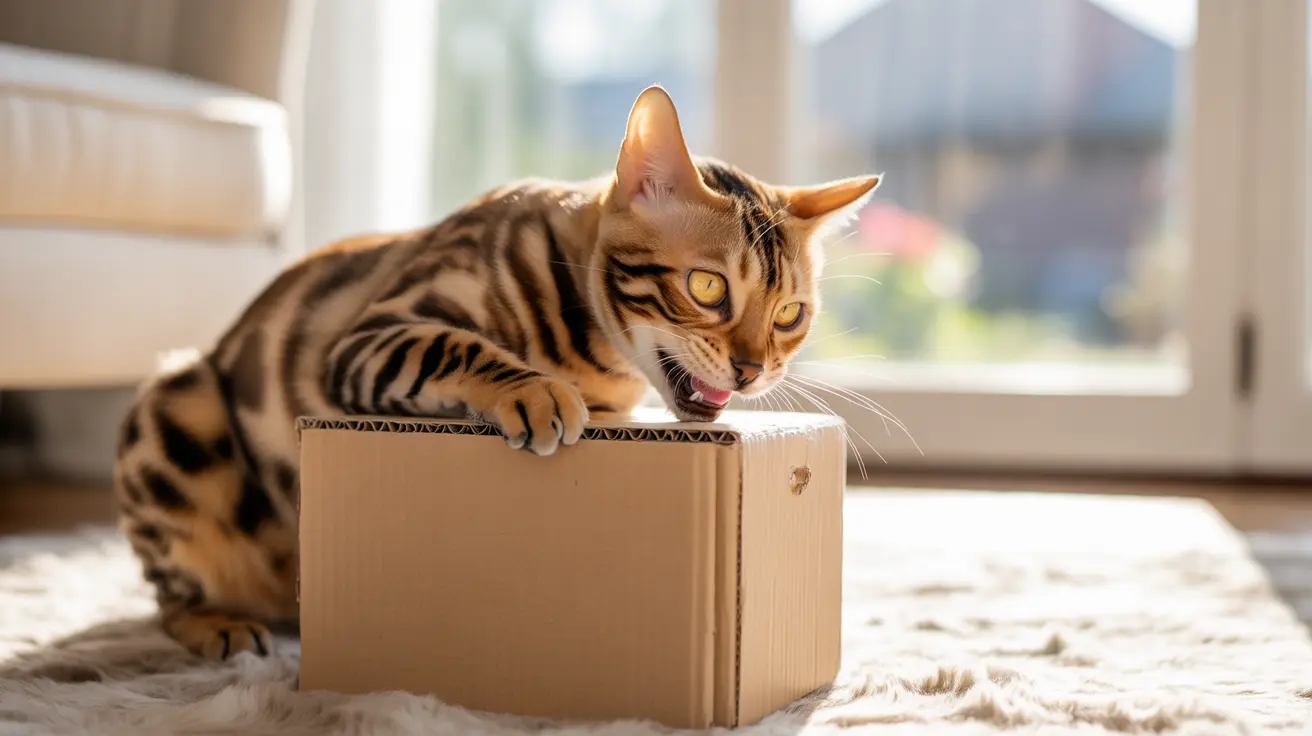If you've ever brought a new package home, you've likely witnessed your cat's immediate fascination with the cardboard box - not just to sit in it, but to bite and chew on it as well. This common feline behavior often leaves pet owners wondering about its significance and safety.
In this comprehensive guide, we'll explore the fascinating reasons behind why cats bite cardboard, examine whether this behavior is cause for concern, and provide practical solutions for managing this quirky habit.
Natural Instincts and Predatory Behavior
Cats are natural predators, and their instinct to bite and tear things apart is deeply ingrained in their DNA. When your cat attacks a cardboard box, they're actually exercising these innate hunting behaviors:
- Simulating prey capture
- Practicing jaw strength
- Engaging their natural tearing instincts
This behavior is particularly common in indoor cats who may lack other outlets for their predatory drive.
Dental Health and Physical Needs
Sometimes, cardboard chewing can indicate underlying dental issues or physical needs:
- Teething in kittens
- Gum disease or dental discomfort
- Need for dental stimulation
- Relief from jaw tension
If your cat suddenly increases their cardboard chewing behavior, it's worth checking with your veterinarian to rule out any dental problems.
Environmental Enrichment and Entertainment
Cardboard provides multiple forms of enrichment for cats:
- Interesting texture and resistance
- Novel sounds during manipulation
- Scent marking opportunities
- Mental stimulation
Many cats simply find cardboard entertaining, especially when they're seeking activity during quiet periods.
Stress and Anxiety Relief
Some cats turn to cardboard chewing as a coping mechanism for:
- Environmental changes
- New household members
- Separation anxiety
- General stress relief
The repetitive action of chewing can have a calming effect, similar to how humans might bite their nails when nervous.
Safety Considerations
While cardboard chewing is generally harmless, there are some important safety factors to consider:
- Avoid boxes with staples or sharp edges
- Remove tape and adhesives
- Monitor for actual ingestion
- Check for toxic inks or treatments
How to Manage Cardboard Chewing
If your cat's cardboard obsession becomes concerning, try these management strategies:
- Provide appropriate chew toys
- Increase interactive playtime
- Offer dental treats and toys
- Create alternative enrichment activities
Frequently Asked Questions
Why do cats chew or bite cardboard boxes?
Cats chew cardboard boxes due to natural hunting instincts, dental needs, stress relief, or simple entertainment. It's a normal behavior that helps them explore their environment and exercise their jaw muscles.
Is it safe for my cat to chew or eat cardboard?
While chewing cardboard is generally safe, eating it can be dangerous. Monitor your cat to ensure they're not swallowing pieces, which could cause digestive blockages. Remove cardboard if your cat starts consuming it.
Can cardboard chewing be a sign of dental problems in cats?
Yes, excessive cardboard chewing might indicate dental issues like gum disease or tooth pain. If you notice increased chewing along with other symptoms like drooling or difficulty eating, consult your veterinarian.
How can I stop my cat from chewing cardboard too much?
Redirect their attention to appropriate toys, increase playtime, and provide alternative chewing options like cat grass or dental treats. Ensure they have enough environmental enrichment to prevent boredom.
Could my cat chewing cardboard mean they have a compulsive disorder like pica?
While rare, compulsive cardboard chewing could indicate pica, especially if your cat actually consumes the cardboard. If you're concerned about compulsive behavior, seek veterinary advice for proper diagnosis and treatment.
Understanding why cats bite cardboard helps us better address their needs and ensure they engage in this behavior safely. By providing appropriate alternatives and monitoring their habits, we can help our feline friends maintain healthy and enriching lives.






